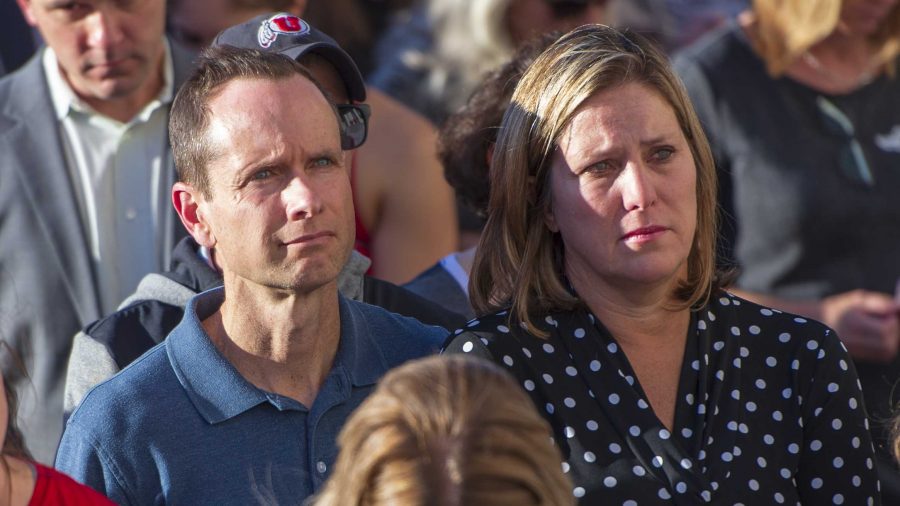The University of Utah released an updated statement regarding the murder of the university’s student and track athlete Lauren McCluskey on Jan. 25. The statement was released in response to a recent “Good Morning America” interview of McCluskey’s parents aired that morning.
The McCluskeys maintained in the interview that the U and campus police failed to do everything possible to prevent their 21-year-old daughter’s killing that took place on Oct. 22, 2018 at the hands of her ex-boyfriend, Melvin Rowland.
In December, U president Ruth Watkins stated that an independent investigation into campus procedures, “Does not offer us reason to believe this tragedy could have prevented.”
“No one can fully appreciate and share the grief of the McCluskey family and Lauren’s friends,” said the U in the updated statement. “But we do share their concern for the safety and security of current and future students and a commitment to the safety and well-being of our campus community.”
The statement lists several reforms that came from the investigative review in December that the U says have already been implemented or are in the process of being implemented. The McCluskeys expressed frustration with the U’s acknowledgment of responsibility. In the ABC News Interview, Matt McCluskey asked, “If there was no way, then why are all of these reforms being implemented?”
The procedural changes to the U’s Department for Public Safety (UUDPS) address numerous concerns that have been raised since the murder. One of these concerns is with UUDPS coordination and outreach. The U campus has a community of tens of thousands, and they have no other public safety options besides UUDPS. Preceding her death, McCluskey contacted outside police departments when frustrated with how matters were being handled on campus but were repeatedly directed back to U police. The U statement reads, “The university has acknowledged that UUDPS viewed Lauren McCluskey’s case through the lens of an extortion case, rather than as a case of potential interpersonal violence. As a result, there was an insufficient sense of urgency regarding the case.” The statement asserts that the UUDPS has adopted mandatory policies to better report and communicate interactions in critical situations.
Regarding why Rowland was not prohibited from being on campus after McCluskey and her parents had reported their concerns, the statement reads, “The University of Utah, located in Salt Lake City, is an open public research university and home to a major academic medical center; each weekday, the university sees upward of 60,000 students, staff, faculty, patients and visitors on campus.” The U’s Behavioral Intervention Team (BIT), a campus group composed of campus police, housing representatives, councilors, deans of students and victim advocates, was never fully aware of McCluskey’s crisis. The U hopes that a more streamlined process of reporting and education will work to improve campus safety.
Another criticism is with inadequate coordination with law resources as well as Rowland’s parole board. Matt McCluskey said to ABC News that, “Lauren had no experience in law enforcement or computers, and yet, with a laptop, she was able to find out that he was a sex offender, had lied about his age, lied about his name, and yet, the police couldn’t take the additional leap and discover his parole status.”
The UUDPS is currently filling positions that include detectives, an evidence technician, an administrative lieutenant and a victim advocate. The victim advocate will work with UUDPS in coordination with the Center for Student Wellness and Office of Equal Opportunity and Affirmative Action.
Beyond systematic reform, the U is promoting a practical and active role for the campus community. This means an increase in education and awareness of resources available to concerned individuals.
Jill and Matt McCluskey started a foundation last month in Lauren’s name to promote campus safety and to honor their daughter’s life. More information on the foundation can be found here.


